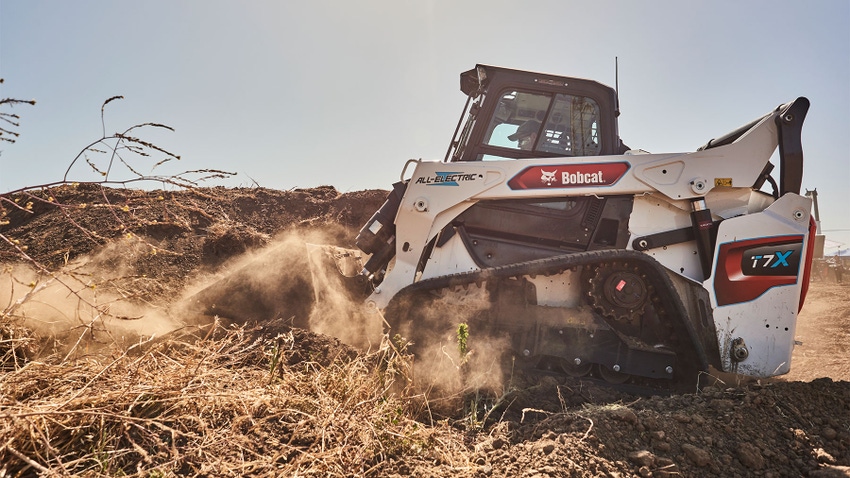
If you believe electric machines are the solution for your future, then your future is arriving now. Look no further than compact track loaders — machines that tackle heavy-duty, tough jobs — to discover the potential advantages of electric-powered machines.
Bobcat is one of the companies leading the charge. Joel Honeyman, vice president of global innovation for Bobcat, West Fargo, N.D., explains that electric power, autonomy and increased connectivity are all technologies available now or coming in the near future. When it comes to electric machines, Bobcat has some in its current lineup with more coming soon, and still more in the concept stage.
“We’ve developed electric machines first where customers were asking for advantages that electric power could provide, and we’re working on more machines as we go,” Honeyman says.
Current electric machines
Here is a closer look at Bobcat’s advanced offerings to the market today:
T7X compact track loader. This loader was the world’s first all-electric compact track loader when it debuted in 2022, Honeyman notes. “Since it doesn’t have an engine, it’s much quieter, and it doesn’t produce carbon dioxide emissions,” he explains. “These are key advantages for operators working in confined spaces or where noise is an issue.”
The machine also doesn’t have a traditional hydraulic system, greatly reducing fluid volume and eliminating potential issues with worn and blown hydraulic hoses. It only requires one liter of fluid for the cooling system.
Operating and maintenance costs are lower because most fuels and oils are eliminated. There are also significantly fewer moving parts, reducing repair costs.
“Yes, initial cost is higher,” Honeyman says. “Electric isn’t for everyone yet. We foresee making traditional diesel machines far into the future. However, these electric machines certainly meet the needs of specific customers.”
Run time on a full battery charge is about four-plus hours, he says. “But there is no idle, and normally about one-third of the time on a job is at idle,” he explains. “So, some people may get a six- to eight-hour workday from it, depending on how they use it.”
Recharge time from an empty charge is about 10 hours. The unit charging batteries require 220 volts and 40-amp service.
“New technology is coming that will shorten recharge time, but it is not here yet,” Honeyman says.
Compact excavators. The Bobcat E10e and E19e battery-electric compact excavators are available now. They feature an ultra-compact design with zero tail swing.
Classified as a mini excavator, the E10e features a retracted 28-inch track width and a maximum digging depth of 76.9 inches. The E19e is a larger version with maximum digging depth of 101 inches. These machines use hydraulics and feature an onboard charger that hooks to a standard 120-volt outlet.
Future machines
Here are machines in Bobcat’s pipeline:
S7X skid-steer loader. This unit features technology like the T7X compact track loader. Though it’s still in research and development, Bobcat has plans for future commercialization of this all-electric skid-steer loader.
RogueX. This is a concept loader now, but it represents a combination of the advanced technologies that Honeyman believes will lead the industry into the future. This concept machine is electric and autonomous.
About the Author(s)
You May Also Like




